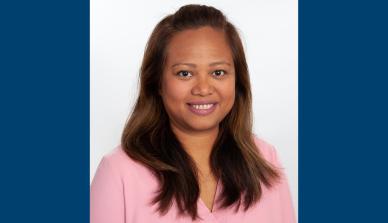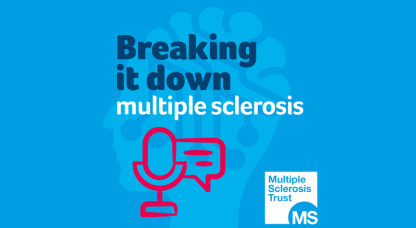There has been much said in the last 12 months about the impact of the pandemic on key workers. We talked to Mavis Ayer, who is an MS Lead Nurse at University Hospital Southampton NHS Foundation Trust, about her experiences as a health professional and how the last year has seen MS services challenged in a way never seen before.
Working as a health professional during the pandemic
19 May 2021

Can you tell us about when you first became an MS health professional and why it was a role that appealed to you?
Yes. I was first drawn to multiple sclerosis because of my interest in neuroscience and I became an MS health professional six years ago. I also wanted a role which offered a better work-life balance than the job I was in at the time.
How has your role changed over the last year, due to the pandemic?
My role over the past 12 months has changed massively! The services we offer all became virtual and we had to adapt very quickly with new technology, constantly changing advice and the ever evolving uncertainties that came with the pandemic. All this while considering how it would affect our patients.
Were you or any of your team redeployed to help out in other areas of the NHS?
Although I was not personally redeployed, some of my nurses were in the first wave of the pandemic. I actually volunteered to be redeployed during that time but it wasn't practical as I was leading a team in charge of managing MS services. In the second wave, I was unfortunately affected by Covid-19 myself, which meant that I couldn't be redeployed.
What are some of the biggest challenges you've faced over the past year?
As I mentioned previously, managing the uncertainty of the situation, facing our own fears while trying to manage our patients' fears and worries. The ever changing advice on DMDs, vaccinations and shielding have all been huge challenges for myself and the team around me.
Looking to the future, what are you hoping for regarding MS services?
Although it has been a challenging year, I think it's important to reflect on what we have learned and to keep going with those things that have worked well, such as virtual consultations, for example. It's also important to remember to look after ourselves as clinicians, take care of our mental health, wellbeing and building resilience so that we can be at our best, both for our patients and ourselves.
Latest news & stories
Sign up to updates from us
Keep up-to-date with the latest MS news, explore new research, read the stories of people living with MS, find out practical tips from MS experts, and discover exciting fundraising opportunities
If you would like to sign up for post or telephone (SMS) updates you can complete our sign up form here


